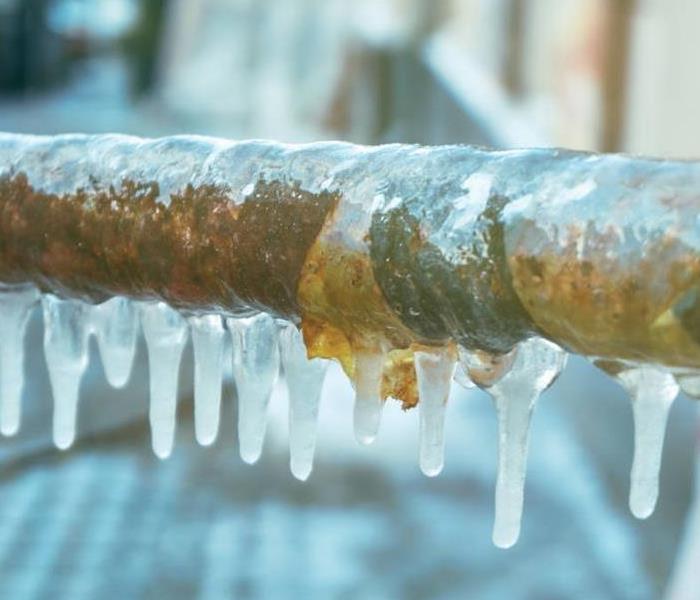Don't let the cold weather ruin your house!
2/19/2021 (Permalink)
What causes pipes to freeze and burst?
Frozen pipes can be a damaging and expensive issue. Extremely cold temperatures of the winter months create a substantial risk for burst or frozen pipes. Being prepared and informed may help minimize the risk of frozen pipes and prevent extensive damage and repairs. How exactly can you prevent pipes from freezing and subsequently bursting? The American Red Cross provides several preventative measures to help reduce the chances of freezing pipes:
- Drain water from swimming pools and sprinkler supply lines.
- Remove, drain, and store outdoor hoses of any kind.
- Insulate exposed water pipes
- Open cabinet doors to allow for warmer air to circulate around the pipes in your home and garage.
- Let cold water drip from the faucet that is served by the exposed pipes to make sure they’re empty.
Doing these actions can greatly reduce the chance of pipes freezing. Though not bulletproof, these steps can certainly help! Make them a part of your winterizing activities before cold weather hits.
What to do if you suspect you have frozen pipe
If you neglected to protect your pipes, or perhaps the weather was more biting than you anticipated, you may still get a frozen pipe, unfortunately, despite your best efforts. Once again, the American Red Cross has suggested steps if frozen pipes are suspected in your home or garage:
- Keep the affected faucet open. As the pipes begin to thaw, the running water will help melt the ice.
- Apply heat to the frozen area of the pipe using a hairdryer, heating pad, etc. until the full water pressure is restored.
Following these steps will help thaw the suspected water quickly without causing a mess or worse, damage that requires a water cleanup!






 24/7 Emergency Service
24/7 Emergency Service
